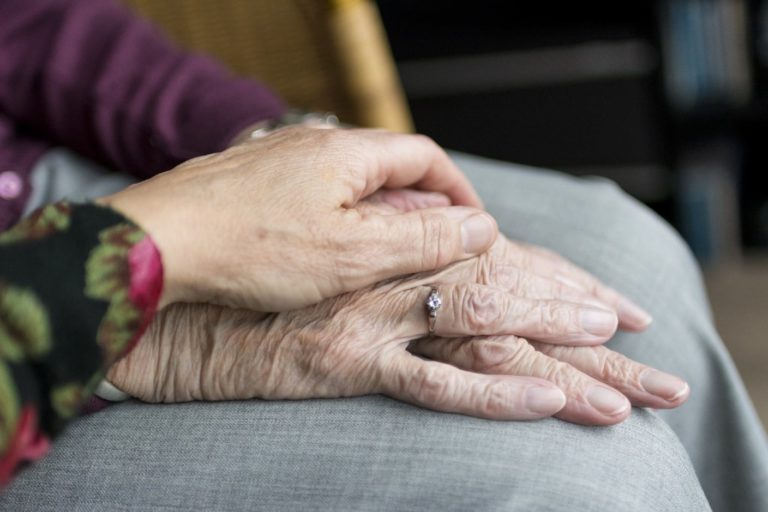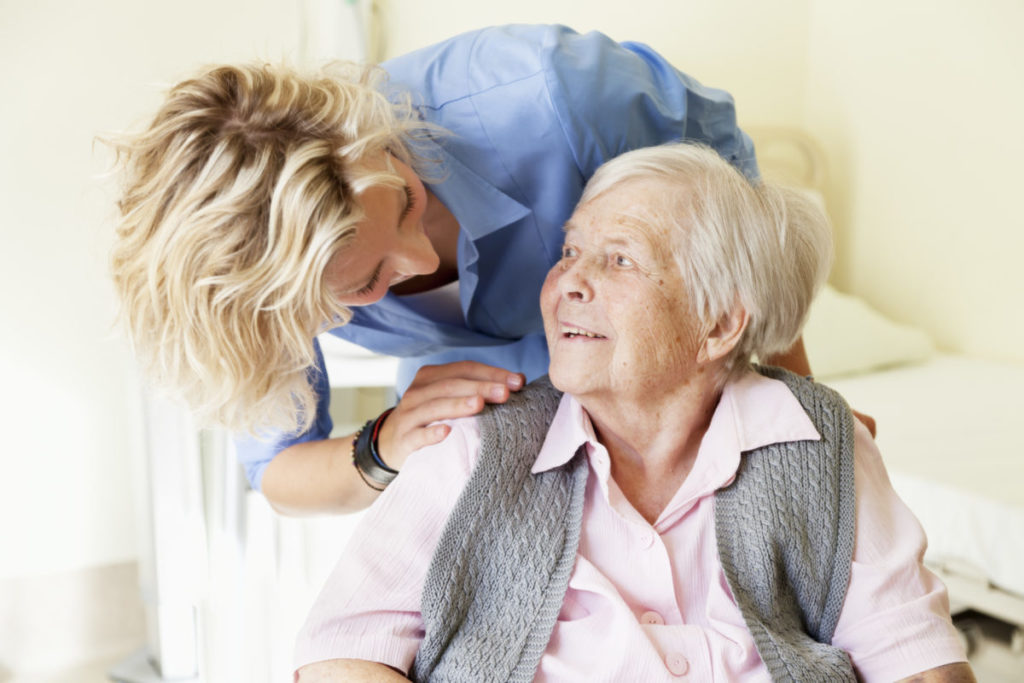When to Consider a Live-In Caregiver
It’s reasonable to get some help and personal care with everyday chores and daily activities that become overly difficult and encumbering. Certainly, it’s important to our well-being as we age to get help when we need it.
If our well-being is becoming compromised and we can’t take care of essential every-day living activities alone, then having a daily and dedicated caregiver is crucial. There are several different options available in terms of getting full-time caregiver assistance.
Perhaps we arrange to live with a family caregiver that can provide the family home care and support we need or we decide to live in an assisted-living facility where our daily needs are taken care of in addition to having medical staff available for health-related aid. A viable alternative would be aging at home and employing a live-in caregiver to support us.
Full-Time Caregiving Services Can Assist With:
- Essential daily living needs (assistance with feeding, dressing, grooming, bathing, toileting and functional mobility as needed)
- Chores such as cooking, cleaning, laundry, running errands, banking, transportation to appointments
- Reducing the risk of physical strain, injury and standard health care (associated with falling down, doing chores, etc.)
- Monitoring and assistance with health and medical conditions
- Companionship (providing social interaction thus reducing depression due to isolation and loneliness)
- Providing peace of mind to the senior and family members
- Independent living while aging at home
If our well-being is becoming compromised and we can’t take care of essential everyday living activities alone, then having daily and dedicated caregiver support is crucial.
In this article, we will explore and explain in more depth the various benefits of in-home caregiving.
Daily Living Made Easier

When the basic activities of life become difficult, it hinders our ability to live in dignity. The activities of daily living (ADL) refer to the essentials like eating, functional mobility (getting around), dressing, grooming, toileting, and bathing.
An in-home caregiver is responsible for making sure these ADL needs are met each day and assists the senior client based on their specific abilities. In addition, a live-in caregiver will provide practical assistance in completing the tasks we associate with instrumental activities of daily living (IADLs).
These are the chores involved with cleaning and maintaining the home, cooking and preparing meals, running errands, paying bills and banking, transportation, and accompanying clients to appointments and even helping with organizing medications.
As a result of getting senior care assistance services with these essential tasks, the elderly client gains:
- Free time to rest and enjoy their hobbies and social recreational activities
- Reduced stress regarding getting things ‘done’ in an effective manner
- Reduced risk of injury and falls associated with physical chores
- Dignity and self-esteem in having an orderly, clean home and personal appearance through personal care
Reassurance and Well-Being
Having 24-hour support in the home brings other benefits to the elderly client beyond getting things done efficiently. There is a sense of added safety and security in having an in-home caregiver. When mobility and health problems exist, there is always a risk of injury or emergency.
It’s reassuring to know that a qualified live-in caregiver is there when needed. As mentioned before, if there are serious health concerns involved, a skilled medical caregiver may be the best solution.
Home health aides or live-in nurses are trained to respond to specific health conditions and perform regular monitoring of the client’s medical condition. This allows for an added level of security and reassurance to client well-being. Additionally, family members gain peace of mind knowing their loved ones are not alone and in capable hands.
Companionship
The daily companionship of a live-in caregiver is of great value to the elderly client.
Having someone around to talk to, accompany you to your appointments, and watch your favorite game show with, etc. means a lot. Loneliness and depression are commonplace with seniors who live alone and have impaired mobility and health.
Having someone around to talk to, accompany you to your appointments, and watch your favorite game show with, means a lot.
Their vitality and get-up-and-go are compromised and they may not receive enough visitors to ensure an adequate amount of social interaction and stimulation. A live-in caregiver becomes a friend and companion which is so very important to the emotional well-being of the elderly.
Supports Independent Living While Aging At Home

Aging at home is an achievable goal even if health and mobility are diminished. A live-in caregiver that provides for the specific needs of the elder client, can allow a senior to stay independent at home while aging. Indeed, the majority of people wish to spend their senior years in the comfort of their own homes.
The familiarity and identification of our homes and our neighborhood are of great importance to most people in their elder years. Living in one’s home reminds us of who we are and used to be and staying there gives a potent sense of self-assurance. For many seniors, it would be difficult or impossible to stay at home without dedicated senior care.
An in-home caregiver makes sure the home is a safe environment where the senior client’s essential physical and emotional needs are met. Certainly, it can be said that staying independent while aging is quite attainable and possible with the help of a live-in caregiver.
Conclusion
During our senior years, if we develop more serious problems with mobility, memory, or overall health we need to consider getting dedicated caregiving assistance. A senior citizen, currently living alone in their own home may need to think about having live-in caregiver support.
Basically, a live-in caregiver will help with whatever day-to-day needs a senior may have. They can ensure the home is kept tidy and clean, meal-time is taken care of along with the dishes, laundry is done, and that there is someone to assist in running errands and driving them to appointments.
A live-in caregiver may also be qualified to provide medical support. Live-In nurses or nursing aides can provide daily living support in addition to skilled medical assistance that includes medication administration, monitoring, and even providing physical therapy if needed.
Again, we can summarize the overall benefits associated with having a live-in caregiver program as follows:
- Daily Living Essentials Are Met
- ADLs (getting the help you need with eating, getting around, dressing, grooming, toileting, and bathing)
- IADLs (getting the help you need with cleaning, cooking, laundry, shopping, errands, transportation, organizing medications, bills, and banking)
- Reassurance and Well-Being
- 24-hr a day support from a qualified caregiver
- Medical support and care with a live-in nurse
- Additional security and safety (assistance with mobility, response to emergencies if needed)
- Peace of mind for senior client and family
- Companionship
- Provides emotional support and well-being to seniors
- Helps prevent depression and loneliness
- Encourages social interaction
- Independent Living at Home
- Makes living at home during aging possible in spite of reduced mobility, and health problems
- Allows seniors to stay in their own home and neighborhood while aging without sacrificing on the quality of life
The decision to employ a live-in caregiver program supports many important factors associated with aging well. Whether you decide to employ a live-in caregiver, or live-in nurse, privately or through a caregiver agency, there are choices to suit your specific needs.
It’s important to remember that the references, skills, and experience, as well as character and personality, are important when interviewing and meeting potential caregivers. After all, a live-in caregiver is an important role and a supportive relationship—not merely a job or service.
Indeed, they should be considered a valuable companion to make your remaining years comfortable, safe, and enjoyable. Building new relationships as important as this isn’t always easy but from the perspective of the benefits, it should bring it’s worth the effort on both sides.
Do you want to cite this page? Use our ready-made cite template.
